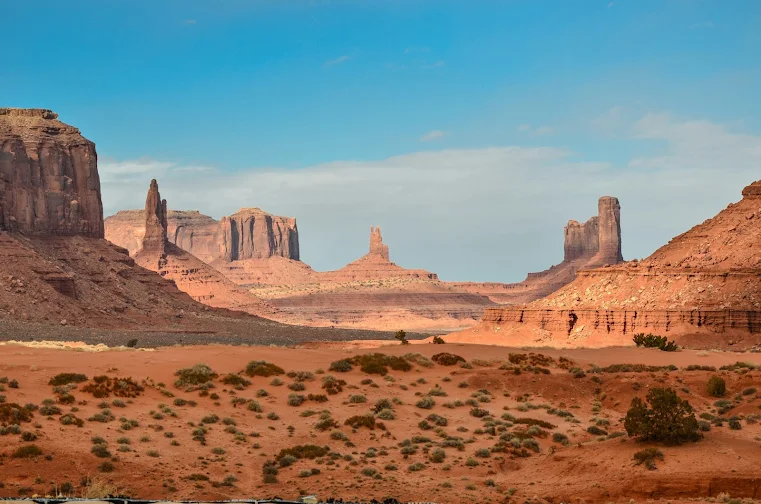Detailed Explanation of Exodus 22
Introduction
Exodus 22 is part of the Book of the Covenant (Exodus 20:22–23:33), a section of laws given by God to Moses after the Ten Commandments. These laws govern social justice, property rights, and moral behavior within Israelite society. Exodus 22 continues the legal codes introduced in Exodus 21, covering property restitution, social justice, and moral obligations.
This chapter is divided into three main sections:
-
Laws about theft and property (verses 1–15)
-
Laws about moral and social justice (verses 16–31)
-
Laws about worship and devotion to God (verses 28–31)
Now, let’s examine each part in detail.
I. Laws about Theft and Property (Exodus 22:1–15)
These verses deal with how to handle theft, damage, and borrowing of property.
1. Laws About Theft (Verses 1–4)
“If someone steals an ox or a sheep and slaughters or sells it, they must pay back five cattle for the ox and four sheep for the sheep.” (Exodus 22:1)
-
This law ensures restitution rather than simple punishment.
-
The difference in repayment (5 for an ox, 4 for a sheep) reflects the value of labor—an ox was essential for farming, so it required a higher penalty.
“If a thief is caught breaking in at night and is struck a fatal blow, the defender is not guilty of bloodshed…” (Exodus 22:2–3)
-
If someone killed a thief at night, it was self-defense.
-
But in daylight, killing a thief was not justified—he could be brought to justice.
2. Laws About Property Damage (Verses 5–6)
“If anyone grazes their livestock in a field or vineyard and lets them stray and they graze in someone else’s field, restitution must be made…” (Exodus 22:5)
-
People had to take responsibility for their animals.
-
Even unintentional damage required compensation.
“If a fire breaks out and spreads to thornbushes…” (Exodus 22:6)
-
If negligence caused a fire to destroy someone’s field, the responsible party must pay for the damage.
3. Laws About Borrowing and Safekeeping (Verses 7–15)
“If anyone gives a neighbor silver or goods for safekeeping and they are stolen…” (Exodus 22:7–9)
-
If the thief was caught, he repaid double.
-
If not, the accused party took an oath before God.
“If anyone borrows an animal and it is injured or dies…” (Exodus 22:14–15)
-
If an animal was borrowed and died without the owner present, restitution was required.
-
But if the owner was there, it was understood as a normal accident.
These laws highlight responsibility, justice, and fairness.
II. Laws about Social and Moral Justice (Exodus 22:16–27)
1. Laws About Marriage and Sexual Morality (Verses 16–17)
“If a man seduces a virgin who is not pledged to be married and sleeps with her, he must pay the bride-price…” (Exodus 22:16)
-
Premarital sex had consequences. The man had to either marry the woman or pay compensation.
-
The father could refuse the marriage but still demand the bride price.
This law protected women’s dignity and social standing.
2. Laws About Sorcery and Idolatry (Verses 18–20)
“Do not allow a sorceress to live.” (Exodus 22:18)
-
Sorcery was linked to demonic practices and idolatry.
-
Israel was called to be a holy nation (Exodus 19:6), separate from pagan influences.
“Anyone who has sexual relations with an animal is to be put to death.” (Exodus 22:19)
-
Bestiality was a severe violation of moral purity and God’s created order.
3. Laws About Social Justice (Verses 21–27)
“Do not mistreat or oppress a foreigner, for you were foreigners in Egypt.” (Exodus 22:21)
-
This law encouraged compassion.
-
Israel was reminded of their own past suffering in Egypt.
“Do not take advantage of the widow or the fatherless.” (Exodus 22:22–24)
-
God defends the helpless.
-
Mistreating widows and orphans would provoke divine judgment.
“If you lend money to one of my people among you who is needy, do not treat it like a business deal…” (Exodus 22:25)
-
No interest should be charged to the poor.
-
This law promoted kindness over greed.
“If you take your neighbor’s cloak as a pledge, return it by sunset…” (Exodus 22:26)
-
A person’s cloak was essential for warmth.
-
Even in loans, human dignity must be respected.
These laws emphasize justice, mercy, and compassion for the vulnerable.
III. Laws about Worship and Devotion to God (Exodus 22:28–31)
1. Respect for Authority and God (Verse 28)
“Do not blaspheme God or curse the ruler of your people.”
-
Respect for God and leaders was vital for a stable society.
-
Romans 13:1–2 echoes this principle.
2. Offering Firstfruits to God (Verses 29–30)
“Do not hold back offerings from your granaries or vats…”
-
Firstfruits were to be given to God as a sign of gratitude.
-
This law encouraged a spirit of generosity.
“You must give me the firstborn of your sons…”
-
This refers to the redemption of firstborns (Exodus 13:13).
-
Israel’s firstborn were set apart because of God’s deliverance in Egypt.
3. Holiness and Dietary Laws (Verse 31)
“You are to be my holy people. So do not eat the meat of an animal torn by wild beasts.”
-
Israel was called to be set apart.
-
Avoiding carrion (dead animals) symbolized spiritual purity.
Conclusion: The Purpose of These Laws
Exodus 22 teaches that justice, compassion, and holiness were central to God’s covenant with Israel. The laws protect property, human dignity, and moral integrity, emphasizing responsibility and love for others.
These principles remain relevant today, reminding us to:
-
Respect others’ property and make amends when harm is done.
-
Protect the vulnerable, including widows, orphans, and foreigners.
-
Honor God through just dealings and holy living.
In the New Testament, Jesus summed up these principles:
“Love your neighbor as yourself” (Matthew 22:39).





No comments:
Post a Comment